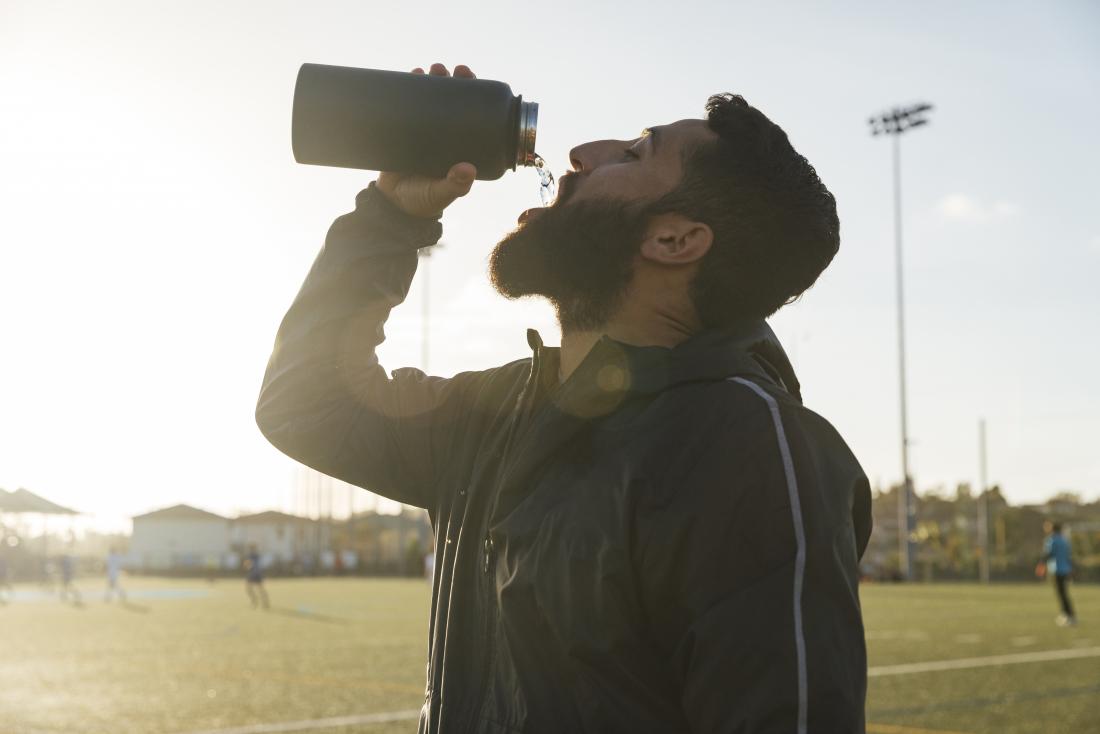Dehydration happens quickly, causing extreme thirst, fatigue, and ultimately, organ failure and death. A person may go from feeling thirsty and slightly sluggish on the first day with no water to having organ failure by the third.
Dehydration does not affect everyone in the same way. Each person will have a different tolerance level to dehydration and may be able to survive without water for longer or shorter periods than someone else.
How long can the average person live without water?

The overall health of a person can determine how much water they need to drink.
The body needs lots of water to carry out many essential functions, such as balancing the internal temperature and keeping cells alive.
As a general rule of thumb, a person can survive without water for about 3 days. However, some factors, such as how much water an individual body needs, and how it uses water, can affect this.
Factors that may change how much water a person needs include:
- age
- activity levels
- overall health
- bodily factors, such as height and weight
- sex
What a person eats may also affect the amount of water they need to drink. For example, a person who eats water-rich foods, such as fruits, juices, or vegetables, may not need to drink as much water as someone who has been eating grains, bread, and other dry foods.
The environmental conditions a person is in will also affect how much water their body uses. A person living in a very hot climate will sweat, causing them to lose more water. A person in a climate-controlled environment will not sweat so they will not use as much water.
If a person who has diarrhea or is vomiting has no access to water, they will lose water much faster than someone without these issues.
Effects of having no water
Humans can only survive a short amount of time without water because the body needs it for almost every process, including:
- regulating body temperature through sweating and breathing
- aiding in digestion by forming saliva and breaking down food
- moistening mucous membranes
- helping to balance the pH of the body
- lubricating joints and the spinal cord
- helping the brain make and use certain hormones
- helping transport toxins out of the cells
- eliminating waste through the urine and breath
- delivering oxygen throughout the body
Without water, the body is unable to function correctly and will begin to stop working.
The effects of dehydration come on quickly, especially in extremely hot conditions when a person sweats.
The body uses water to produce sweat, which evaporates and lowers a person’s body temperature. Without water, the body cannot produce sweat. This can lead to a dangerous increase in body temperature and put pressure on the fluid in the body, including the blood.
If this leads to a drop in blood volume, less blood circulates in the body, causing a severe drop in blood pressure. This itself can lead to unconsciousness or death.
At the same time, the mouth dries, and the digestive system slows down.
Water helps the body remove the toxins from cells and excrete them through the urine and breath. Without water, the body cannot do this efficiently, causing toxins to build up. A toxic buildup harms the kidneys, which process the removal of the toxins from the body. If the kidneys fail, the toxins build up even further, causing widespread organ failure and death.
Role of food in dehydration
Though drinking pure water is the main way a person takes in fluids, other liquids, such as herbal teas, fruit juices, and broth, also aid hydration.
Also, many foods contain water that replenishes the body’s fluids. Examples include fruits, berries, and greens.
However, not all foods will help hydrate the body. Very dry, salty foods, such as breaded products, salty chips, or other dry, packaged snacks, may make dehydration worse.
Drinks containing alcohol or caffeine may dehydrate the body faster, as they cause excessive urination.
Dehydration risks

Dehydration can cause headaches and confusion.
The symptoms of dehydration can appear quickly. If the body starts to lose water, it may send signals to the brain to trigger a response that the person will notice.
Most people are familiar with minor symptoms of dehydration, such as having a very dry mouth or feeling very thirsty.
A review posted to the journal Nutrients notes that thirst is the first sign that a person does not have enough water in their body.
For most people, drinking when they feel thirsty will provide them with more than enough water to function and thrive.
Listening to these signals and getting water into the body is crucial. As a study in BMC Public Health notes, water makes up 60% of a person’s body weight, and losing as little as 3 percent of this weight through water loss may lead to dehydration.
If a person ignores these signs or cannot get water, their body will respond. The brain will send signals to the body to conserve water and urinate less. This will also slow the function of the kidneys.
Dehydration may cause other notable changes in the body, such as:
- sluggishness or lack of energy
- headache
- dizziness and confusion
- heatstroke and heat cramps
- stiff joints that may eventually stick and not work properly
- raised or otherwise unregulated body temperature
- swelling in the brain
- sharp changes in blood pressure
- seizures
The person may also go into shock and become unresponsive.
Drinking water regularly helps keep the cells healthy, but when a person’s body rapidly loses water, the body’s cells will start to shrink as water leaves them.
Summary
Hydration is essential for human life. While some people may be able to survive for weeks without food, they can only survive a few days at most without water. Drinking water and eating foods that contain a lot of water may help prevent dehydration.
Without water, dehydration can affect the body rapidly. Depending on the person’s environment and exertion levels, they may notice changes in their body after just a few hours. If a person has diarrhea or vomiting, their body may lose water faster.
In general, a person who drinks when they feel thirsty should not be at risk of dehydration.
